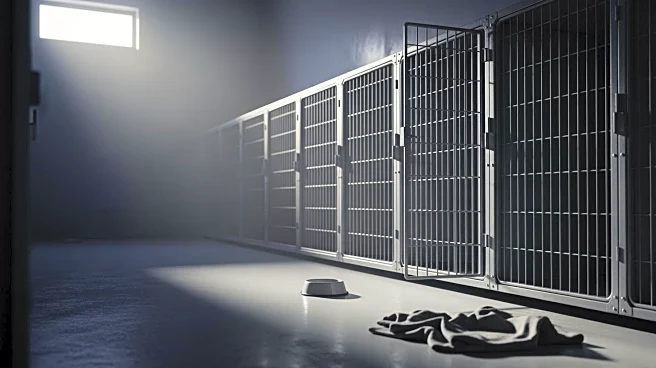What's Happening?
President Donald Trump has announced his readiness to impose significant sanctions on Russia, contingent upon NATO members ceasing their purchases of Russian oil. In a letter shared on his social media platform, Truth Social, Trump emphasized that the ongoing oil transactions by NATO countries undermine their negotiating power against Russia. He proposed that ending these purchases, along with imposing tariffs on China ranging from 50% to 100%, would expedite the resolution of the conflict in Ukraine. Trump has been vocal about his belief that such economic measures would pressure Russia into a peace agreement, aligning with his campaign promise to end the war swiftly.
Why It's Important?
The proposed sanctions and tariffs could have substantial implications for international relations and global markets. If NATO members comply, it could lead to a significant shift in energy dependencies and economic alliances. The cessation of Russian oil purchases by NATO countries would likely impact global oil prices and supply chains, affecting economies worldwide. Additionally, the imposition of tariffs on China could escalate trade tensions, potentially affecting global trade dynamics. The move underscores the strategic use of economic tools in geopolitical conflicts, highlighting the interconnectedness of global economies and the potential for economic policies to influence international peace efforts.
What's Next?
The feasibility of Trump's proposal depends on the willingness of NATO members to align with his strategy, which may face resistance due to varying national interests and economic dependencies on Russian oil. The response from China and Russia to these potential economic pressures will also be critical. If NATO members agree to the proposed measures, it could lead to a reevaluation of energy policies and trade agreements. The international community will be closely monitoring the situation to assess the potential for diplomatic resolutions or further escalations in the conflict.









